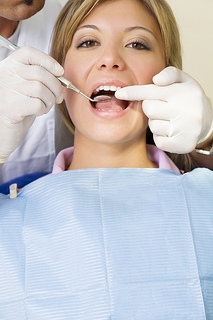
Five words no one welcomes: “You need a root canal.” But if you are delaying treatment because you are worried about pain and an uncomfortable day in the dentist’s chair, please think again! Modern root canal procedures are designed to repair your damaged tooth gently and efficiently, and leave you with a restored natural tooth that can last a lifetime.
- Why might you need a root canal?
First, a little tooth biology. Each tooth has a crown (the part we see above the gums) and one or more roots (the part of our tooth below the gum line that is attached to bone in our jaw). The tooth has three basic layers: the hard enamel and cementum that cover the outer crown and root, the softer dentin beneath that layer, and, on the inside, the pulp. Pulp is made of living tissue, and contains the blood vessels and nerves that nourish the tooth and keep it vital.
Even with the protection the enamel and dentin provide, sometimes the pulp can be infected or damaged. If you have suffered an injury to your mouth or jaw, or an infection has developed from an opening in the tooth caused by a deep cavity or crack, you may need a root canal to prevent further infection, pain, and even tooth loss. Call our Marrero office immediately if you feel pain with chewing or pressure, prolonged sensitivity to heat or cold, swollen, and tender gums around a tooth, or tooth discoloration.
If a root canal is necessary, the procedure is very straightforward. After the area around the tooth is numbed, we will make an opening in the crown to allow access to the pulp inside. Very small instruments will be used to clean the inner tooth and removed bacteria and dead or dying tissue. The area will be thoroughly disinfected, and the inside of the tooth shaped and then filled and sealed. A temporary filling or crown might be placed on the tooth to prevent bacteria and food from entering the site if a permanent crown needs to be created. The entire process usually takes from one to three visits.
If we suggest a root canal, it is because this is the best way to save your tooth. Please feel free to talk to us about your particular needs and concerns. Which tooth is affected, how many roots are involved, what type of filling or crown might be best—we will work with you to provide all the information you need and all the options you have available.
Common Concerns
- Are you concerned about pain?
The most painful part of a root canal is often the severe discomfort your tooth causes before treatment. And infections and damaged nerves can affect not only the injured tooth, but the gums, tissue and even bone surrounding it. With our modern dental techniques, a root canal procedure is often no more uncomfortable than a regular filling. The local anesthetic we use will prevent you from feeling any pain during the procedure, and, while the area around your tooth might be a bit sensitive following treatment, the pain caused by the infection or injury should be gone.
- Are you anxious about the procedure?
If dental treatment causes you anxiety, please let us know. There are several sedation options we can pursue to make this procedure less worrisome. Our goal is to make your treatment as gentle and comfortable as possible.
No one welcomes the news that a root canal is necessary, but with today’s procedures, this treatment can be just what you need to relieve your pain and keep your natural tooth where it belongs for many years to come. And that is welcome news, indeed!




